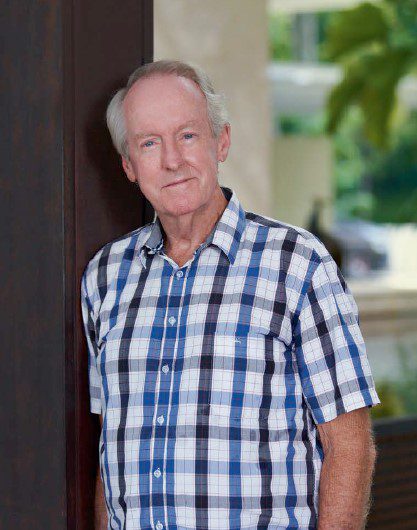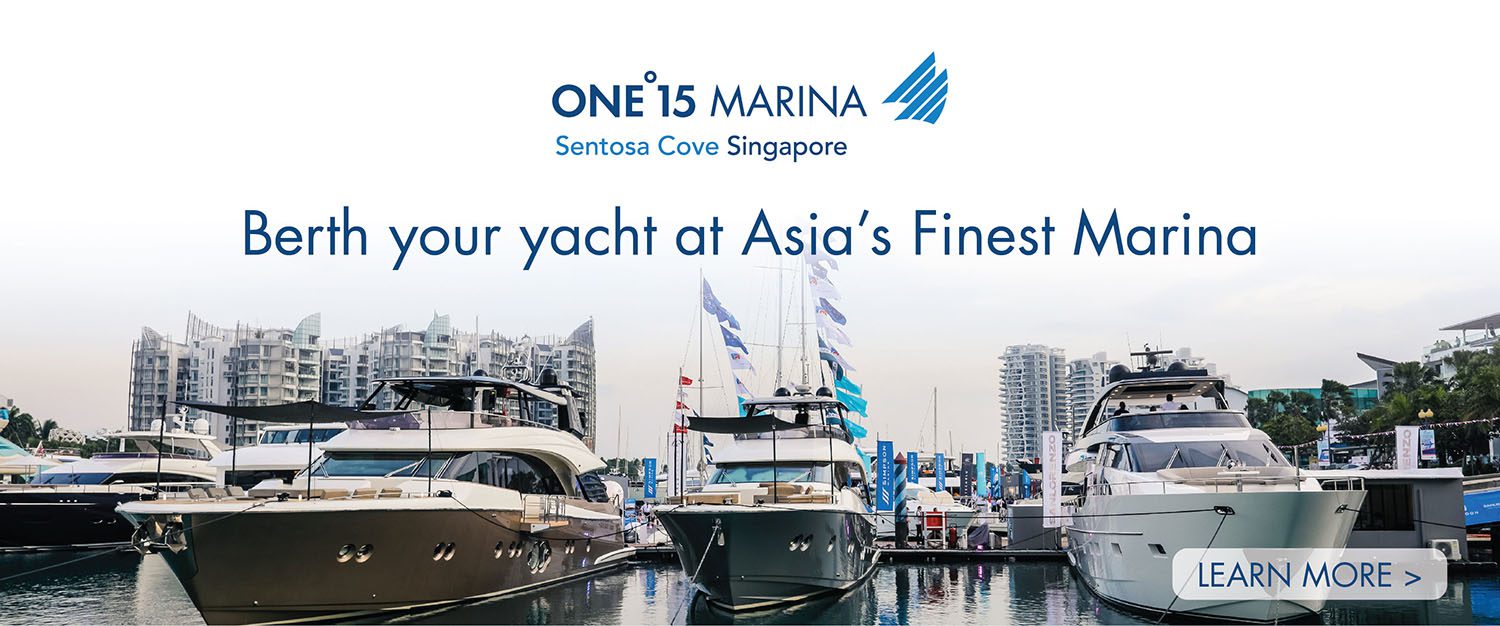On Water: Richard Howe
On Water: Richard Howe

When 11-year-old Richard Howe single-handedly tore across Sydney Harbour in a snub-nosed sailing dinghy that his brother had fashioned out of cedar and plywood, it was only a sign of things to come. At the age of 24, when he was on leave from the Merchant Navy, he volunteered his services as a navigator for a yacht that had entered the Sydney to Hobart Yacht Race.
“The yacht had got lost when it sailed from Melbourne to Sydney, so I went up to the skipper and said, ‘I heard that you need a navigator’,” says Richard. “I wasn’t a great yachtsman, but I knew how to use a sextant and read currents, so we traded skills.”
Richard’s first Sydney to Hobart Yacht Race resulted in first in division and third overall on handicap. More international skippers sought Richard out and he subsequently participated in the Southern Cross Series and six Sydney-Hobart races in Australia, and Admiral’s Cup and Fastnet Race in the UK. “We won or were well placed in lots of races, but I also learnt so much about sail handling and making yachts go fast.”
Richard’s first yacht purchase however wasn’t until 1979—while on a road trip across the United States. He bought a 30-ft Catalina yacht, which he named Rumbottle and sailed from California to the UK, via Mexico, Panama and New Orleans and across the panhandle of Florida.
NEXT ADVENTURE
Richard intended to sail across the Mediterranean, but his journey was cut short because he received the offer of a job in Singapore. Rumbottle and Richard remained grounded on the island for four years. But the travel bug bit him again, and on 2 February 1986, with the support of his new Singaporean wife Benita, Richard set out on his 29,996-mile journey—across two years—around the globe on Rumbottle. Benita joined him when she could at some ports along the journey.
“I set myself the goal of sailing around Cape Horn,” says Richard. “But while I enjoyed racing, I wanted to take this at a more leisurely pace. I wanted to enjoy myself.”
However, with weather conditions dictating his route, he needed to avoid the Caribbean during hurricane season.
Richard recalls many memorable moments from that time—including the warm welcome he received as he sailed into Port Stanley in the Falklands and the marine creatures, such as two sailfish, a humpback whale and three orcas, that kept him company. However, when he reached the Grand Banks of Newfoundland, a heavy swell—created by the warm Gulf Stream meeting the cold Newfoundland Current—capsized his boat. Water poured in through the hatch, but thankfully, the next swell 45 seconds later helped the boat tilt itself right. Surrounded by destruction, Richard spent the next seven hours bailing out the water from the cabin. “There is nothing more efficient than a frightened man with a bucket,” he says.
The swell left Richard, who had been in the cabin when it hit, blackened with bruises. His boat had a broken boom and sextant monocular, and ripped mainsail and jib. The charts had turned into paper mache. “The labels also came off my canned food, so I had mystery food until the next port,” he laughs.
Spring tides in Yemen, also saw Rumbottle run ashore. But luckily, a sixth sense made Richard put up the spinnaker and enable the boat to catch the faintest of breezes—so he was able to turn the boat to face back out into the water.
Regardless, the thought of giving up never crossed his mind. Each challenge urged more resilience, like the time he had to forego sleep for 36 hours when he was entering the Straits of Malacca, coming back to Singapore. “The shipping lanes were busy, and there were also little fishing boats without any lights on,” says Richard. “I turned up my music and would set an alarm clock to have 15-minute power naps.”
SUPPORTING OTHERS
Upon his return to Singapore, Richard launched his own business, Maritime Claims & Services Pte Ltd, which helps the ship industry with everything from salvage to disputes.
As the Vice-chairman of The Mission to Seafarers in Singapore, Richard and his team have also been helping sailors who have suffered hardships throughout the pandemic. They have been assisting crew who are grounded to their ships in port—because of COVID-19—to connect to people on land. “Many ships don’t have Wi-Fi, so we are now supplying Wi-Fi units to ships while they are in port, which allows the entire crew to WhatsApp their families or download movies,” says Richard. The team also sends aid packages and offers counselling services via phone to those onboard these ships.
Richard has also been appointed to an MPA (Maritime and Port Authority) Yachting Safety Committee, with other experienced sailors, which has the task of upgrading the general safety of yachts within the port.
In 2020, after 40 years of sailing together, Richard decided to sell Rumbottle, as a hip operation made running across the deck challenging. “She still had a lot of life in her, and I wanted to see her being used,” says Richard. “I’m always delighted when I see Rumbottle and her new owner out on the water.” Richard continues to journey around the waters of Singapore on his cruiser, Grand Banks, which he clarifies is the name of the company, it’s not named after his night in Newfoundland. With this cruiser he is enjoying much calmer waters.

